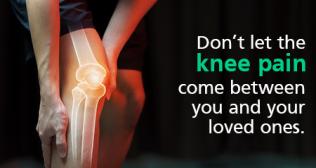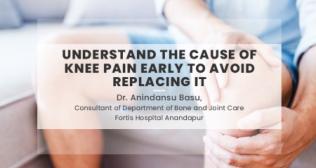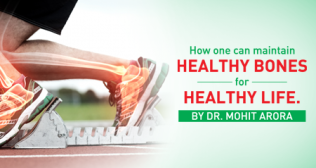
When Should You Consider For a Knee Replacement Surgery?
Knee replacement surgery, or knee arthroplasty, is a significant procedure that involves replacing a damaged or worn-out knee joint with an artificial one. It’s a common surgical solution for individuals suffering from severe knee pain and dysfunction, particularly due to arthritis or injury. Deciding when to opt for knee replacement surgery is a complex decision that involves evaluating various factors related to your symptoms, overall health, and the effectiveness of non-surgical treatments. This article explores the key considerations and signs that may indicate it’s time to consider knee replacement surgery.
Severe and Persistent Pain:
One of the primary indicators that knee replacement surgery might be necessary is persistent knee pain that doesn’t improve with non-surgical treatments. If you experience chronic pain that affects your ability to perform daily activities and interferes with your quality of life, it’s crucial to evaluate the severity of the pain. Non-surgical options like medications, physical therapy, and injections are typically tried first. However, if these treatments fail to provide relief and the pain continues unabated, knee replacement surgery may be considered.
Chronic Inflammation and Swelling:
Long-term knee inflammation and swelling that do not improve with rest, medications, or other treatments can be a sign that the knee joint is severely damaged, making surgery a viable option.
Reduced Mobility and Stiffness:
Significant stiffness and a limited range of motion in the knee, making it difficult to perform everyday tasks, may indicate the need for knee replacement surgery. Knee pain can severely limit your range of motion and affect your ability to perform everyday tasks such as walking, climbing stairs, or bending your knee. If these mobility issues prevent you from engaging in activities you once enjoyed or from performing routine tasks, it may indicate that a more definitive solution, such as knee replacement, is needed. Mobility impairment is often associated with joint damage and arthritis, which are common reasons for considering surgery.
Deformity:
Visible deformity of the knee, such as bowing in or out, can be a sign of severe joint damage that may be best addressed with surgery.
Failed Conservative Treatments:
When non-surgical treatments such as physical therapy, medications, weight loss, and assistive devices like braces or canes fail to provide sufficient relief, knee replacement surgery becomes a consideration.
Impact on Quality of Life:
If knee pain significantly affects your quality of life, including your ability to work, sleep, or engage in social and recreational activities, surgery may be the best option.
Advanced Osteoarthritis:
In cases of advanced osteoarthritis or other degenerative joint diseases where the cartilage in the knee is severely damaged or worn away, knee replacement surgery can help restore function and alleviate pain.
Previous Injuries:
Previous knee injuries that have led to chronic pain and dysfunction, and that have not responded to other treatments, may also necessitate knee replacement surgery.
Deciding to undergo knee replacement surgery is a significant decision that requires careful consideration of various factors. Persistent pain, limited mobility, ineffective non-surgical treatments, and diagnostic imaging results are all important indicators that may suggest the need for surgery. Additionally, evaluating the impact on your quality of life, considering your age and overall health, and understanding the risks and recovery process are crucial in making an informed choice.
Consulting with an orthopedic specialist and seeking a second opinion if necessary can provide valuable insights into whether knee replacement surgery is the right option for you. Ultimately, the goal of the surgery is to alleviate pain, restore function, and improve your quality of life, allowing you to return to an active and fulfilling lifestyle.
Categories
Clear allMeet the doctor

- Orthopaedics | Orthopaedics
-
20 Years
-
1000



















